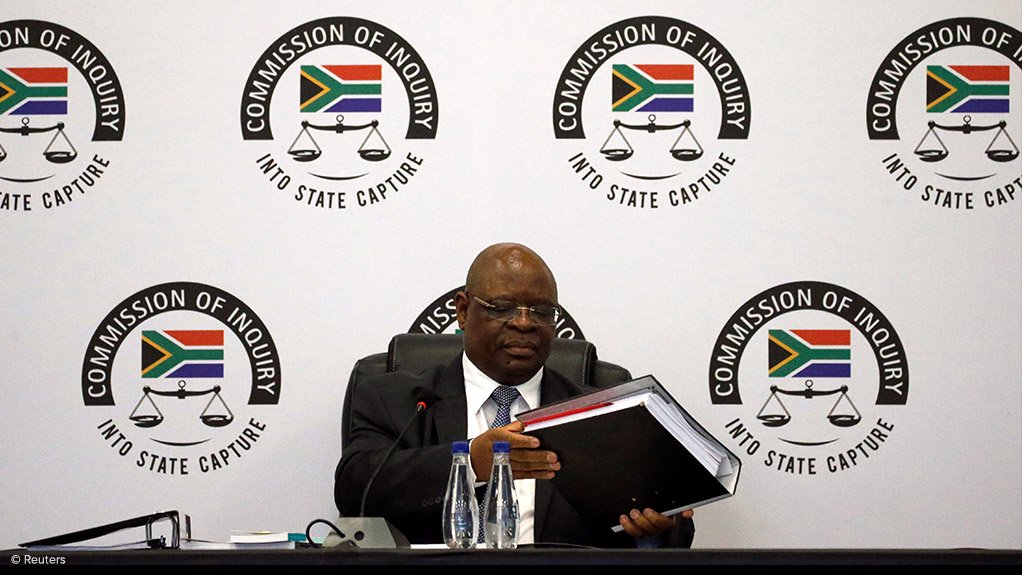/ MEDIA STATEMENT / The content on this page is not written by Polity.org.za, but is supplied by third parties. This content does not constitute news reporting by Polity.org.za.
Evidence led at the commission of inquiry into state capture on Friday focused on the Industrial Development Corporation (IDC) funding to EML Energy, the black-owned company roped into the fuel procurement strategy of South African Airways (SAA) in 2016 in the name of transformation. The IDC’s chief risk officer, Mark Mainganya, was in the witness chair.
EML was approved for two loans with IDC, totalling R12.5-million, before even securing the SAA tender. The two loans appeared to have been approved on the strength of a recommending submission by senior account manager Billy Cobbinah, who worked in the development funds unit of the state-run funder. An e-mail trail submitted as part of evidence shows that an Edward Komane wrote to Cobbinah, asking for the deal to be “done fast for a potential client” and promising that he is awaiting audited financial statements, presumably of the said client. Komane, said Mainganya, is not an IDC employee.
EML’s budget projections presented in its application show that it represented one third of SAA’s tender, but that should not have been the basis on which loans to it were approved, said Mainganya. The company’s share of responsibility was to provide 40-million litres of jet fuel per month, which it failed to do, according to SAA’s fuel manager Mark Vaughn in his testimony in June.
The first loan was to be paid over a period of three years, while the larger one is scheduled over a five-year period, starting in 2021.
At the time of the tender, SAA was under the chairmanship of Dudu Myeni, whose board took a strategic decision in early 2016 to procure 15% of all fuel for the national carrier from a black-owned entity. EML, owned by Pretoria music promoter Eldridge Motlhake, was granted a contract to supply about 2-million litres of Jet-A1 fuel to SAA last year, according to Vaughn. It was part of a tripartite arrangement which also included large oil companies Total and Shell, which were to provide a bulk of the fuel need.
Mainganya told the commission that the IDC approved the two loan facilities to EML in February 2016, for R6-million and R6.5-million. The first was for working capital, while the second was for the purchase of equipment the company would need to carry out its SAA obligations, including fuel bowsers. By Mainganya’s explanation, the IDC’s process for funding businesses is a rigorous one that requires a number of steps where the compliance of the applicant is tested.
Normally, an applicant’s business plan would go through the IDC’s pre-investment business centre, but that was not the case with EML. Also, there was a condition in the approval that EML would have to prove that it could indeed secure the fuel, but this too was overlooked.
Issued by Corruption Watch
EMAIL THIS ARTICLE SAVE THIS ARTICLE ARTICLE ENQUIRY
To subscribe email subscriptions@creamermedia.co.za or click here
To advertise email advertising@creamermedia.co.za or click here











